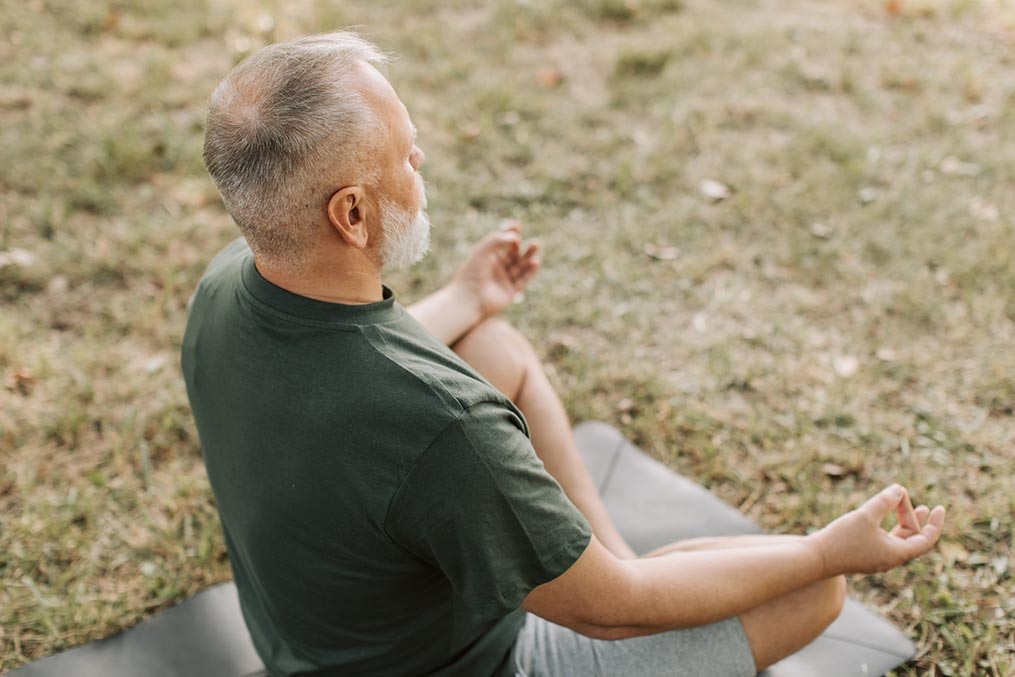The Mental Benefits of Exercise
We already know that exercise is good for us but it can also help improve our mood, help with anxiety, stress and depression and also improve our sleep patterns.
Sure, exercise will help in everyday activities such as climbing the stairs or doing jobs around the home because it improves our aerobic capacity, general mobility and strength. It can also help with weight-loss, builds and tones our muscles, helps improve blood pressure and reduces the risk of diabetes, all of which can potentially add years to our life expectancy.
But probably the real reason we exercise is because it gives us that feeling of well-being, we just feel good, we seem to have more energy, we sleep better, we’re mentally more switched on and just generally feel more relaxed and positive. Research has indicated that even modest amounts of exercise can make a real difference and it’s never too late to start; no matter your age or fitness level, starting to exercise will change your outlook and help you get more out of life.
Since the body and mind are so closely linked, when your body feels better so, too, will your mind and here are a few of the areas that benefit:

Combat Stress
When our bodies are feeling the effects of stress then our muscles can feel tense, especially in the neck and shoulders, which can very easily lead to pain and sometimes headaches. You can also feel a quicker heart rate and tightness in your chest. Stress can also cause insomnia, even stomach problems. Then because we worry about the symptoms this can cause even more stress, but exercising is the effective way to break this cycle. The physical activity means you’re not only using your muscles and pumping blood around your body including the brain, but it also relaxes the muscles and relieves tension in the body.
Improve your mood
Exercise has been proved to boost your mood which therefore decreases the symptoms of both depression and anxiety. Exercise also boosts your endorphin levels which give you that “feel good” factor that naturally lifts your mood.
Increase your self-esteem and self-confidence
The knock-on effect of exercise can also result in changes in your body shape, weight-loss and improved muscle tone. All of this can add up to a real boost of your self-esteem and the confidence that comes with it. You’ll just feel better, whether is doing some gardening or climbing a hill. It’ll take less effort, you won’t feel winded, and your clothes won’t feel as snug as before. Your new fitness will just boost your body, mind, and spirit.
Better sleep
Although exercise fatigues the body, another excellent benefit is that it creates a calming effect on the mind. Because of this effect, your body and mind are more relaxed and ready for natural sleep, so those disturbed nights should be a thing of the past. This can change however if you exercise too close to bedtime or if you over-train, and conversely this can cause some insomnia.
Brain boost
Studies have shown that cardiovascular exercise not only creates new brain cells but also helps slow down or prevent cognitive decline and memory loss. People find that when they exercise, they are mentally sharper, have more mental energy and more creative.
So physical activity and exercise can:
-
generally help you to feel better
-
reduce the risk of high blood pressure, heart disease, obesity, diabetes and dementia
-
help you recover from other illnesses and conditions
-
help you be more mobile, lose weight and tone your body which is great for overall health and also improve your mood, confidence and self-esteem
-
have a good exercise routine with a healthy diet will help boost your motivation and energy.
There are just no down-sides to including exercise as part of your life!
So why not get moving!
Keith Anderson
Full Potential

UK Running Events & Marathon Calendar
If you’re looking to take on a challenge this year, a half marathon (UK) or a big run is perfect! Find out about your big run with our UK marathon calendar.
Take a look
Top Running Apps
Running gets easier, more fun and more effective with the proper app. With so many running apps out there, it can be a minefield trying to find the one that’s right for you. No worries, we’ve broken down the top running apps in a useful list.
Take a look
The easy guide to marathon recovery
Recovering from your marathon is just as important as training for it. Find out how to do it safely and carefully.
Take a look
The easy guide to race day: marathon nutrition and hydration
From drinking water little and often to having a carb-rich meal, there’s a lot that goes into a good nutrition and hydration plan for your marathon race. Here’s what you need to know.
Take a look
How to train for a half marathon
Training for a half marathon can be a daunting task. But don’t worry; we have plenty of tips to make training for a half-marathon a safe and enjoyable experience.
Take a look
How to train for a full marathon
Discover helpful tips and advice around marathon training with BUXTON.
Take a look
Five key pre-run stretches
When running a marathon or just beginning a training session, it’s really important to remember to stretch. Here are our top pre-run stretches to do before you set off and start running.
Take a look